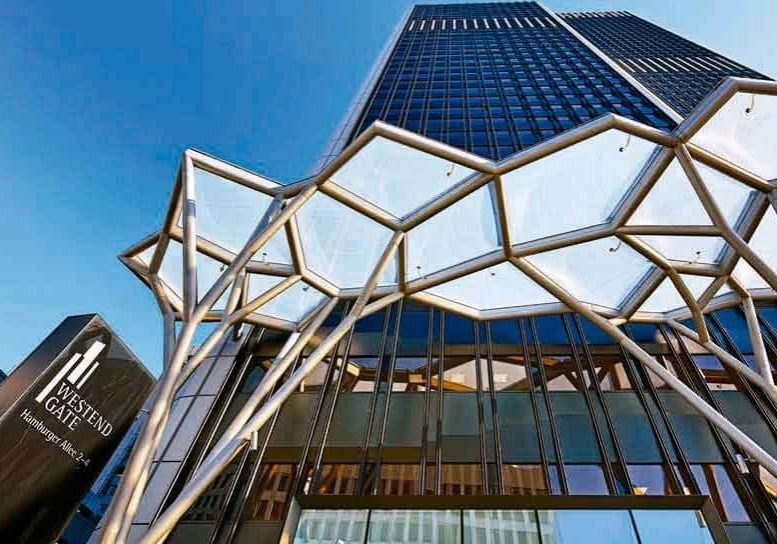In August, construction employment totaled 7,259,000, reaching a 10-year high and growing by 297,000 this year alone. But 80% of contractors still report widespread difficulty finding qualified workers for hourly craft positions. Associated General Contractors of America (AGC) has presented a plan to the federal government calling for doubled funding for career and technical- education programs, reform to immigration and improved federal workforce training programs over the next five years. AGC is also taking steps to recruit more people to the industry. That is a bandwagon we should all be able to jump on.
Our focus this month is Maintenance, a topic so important to our industry that we never go a year without highlighting it. First is The Care and Feeding of Escalators and Moving Walks, an Industry Dialogue with Ken Smith, who has been in the industry for 30 years. Smith highlights the maintenance needs of equipment, observing, “It’s never one size fits all.” Escalator maintenance, he says, should be tailored to each unit by age, wear, condition and design. In An Ecosystem of Partners, our Kaija Wilkinson interviews Schindler executive Jeremy Rainwater about the company’s latest advancement in the Internet of Things, Schindler Ahead, which continues to evolve as the industry undergoes “a seismic shift in the way we provide service to our customers.” Several authors delve into the specifics of maintenance of vital components: drives, doors and suspension means. In Elevator Drive Maintenance, Brian Holtzcamp discusses the conditions and actions needed to keep variable-frequency drives properly maintained for long life. Periodic Maintenance of Elevator Doors by Ӧmer Gürkan Gürbüz highlights the points of maintenance that should be performed monthly, observing that, at 10 years, it’s time for modernization. Rami Aro and Carlos Paiz Gatica authored Predictive Maintenance — Smart Services Enabled by Industrial Analytics, in which they make a case for the use of industrial analytics (i.e., machine learning) when applied to data from vertical-transportation (VT) equipment to reduce downtime. Suspension Means — Equalizing Loads to Extend Their Service Life by Tim Ebeling details how demand for smaller systems with smaller rope diameters means multiple ropes and increased rope wear. When tension or wear is uneven, it reduces the lifespan of the entire rope system.
One article not in the focus section but, perhaps should be, is that by John Koshak, Inauguration of ASME A17 Committee Marks Milestone in China. This is an eye-opening report on what the explosive growth in the China elevator industry has wrought: too many accidents and too little maintenance. ASME A17.1/CSA B44 came together recently with China’s new ASME A17 China International Working Group to set a new and safer course for the largest elevator market in the world.
Features this month include A Grand Renewal by Jack Higgs, which spotlights a project that involved revitalizing a Washington, D.C., landmark: the Post Office and Clock Tower at 1100 Pennsylvania Avenue Northwest. On the National Register of Historic Places, it was leased by the Trump Organization in 2013, and Quality Elevator was chosen to modernize 11 existing elevators and install new equipment. The challenges were many, due to the historical nature of the building. King of the Hill by Robert Encinas Muñoz describes how thyssenkrupp inclined elevators help people access the Bilbao Metro Line 3 and other parts of Bilbao, Spain. Westend Gate by Sasha Seiss yielded this month’s cover. The 47-floor tower in Frankfurt was built in 1976 and recently modernized by KONE, improving security and efficiency.
In addition to features and our focus topic, industry expert George W. Gibson has an important Continuing Education piece, A17/B44 Type B Safety Stopping, Part Two. In Retail Rising, correspondent Shem Oirere uses a case study to illustrate Africa’s evolving retail landscape and the VT that helps power it. Finally, our historian Dr. Lee Gray presents a fascinating look at a rare 1929 Otis handbook that sheds light on a newly restored museum in London in The Royal Institution’s Micro Leveling Elevator.
As we look to the future, challenges, including building a strong, skilled workforce, remain. Let’s hope we are able to successfully deliver complex projects safely around the world.
Get more of Elevator World. Sign up for our free e-newsletter.








